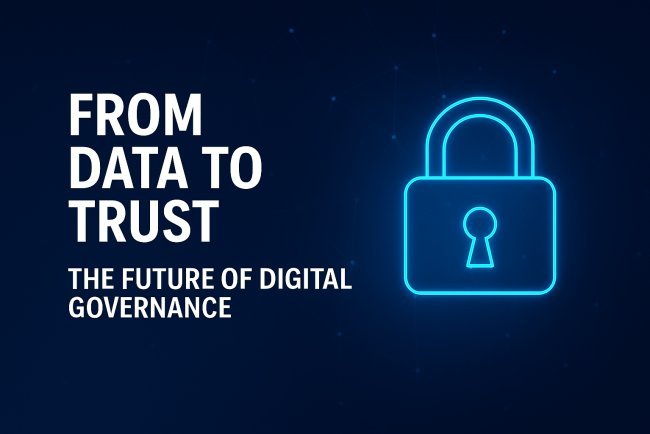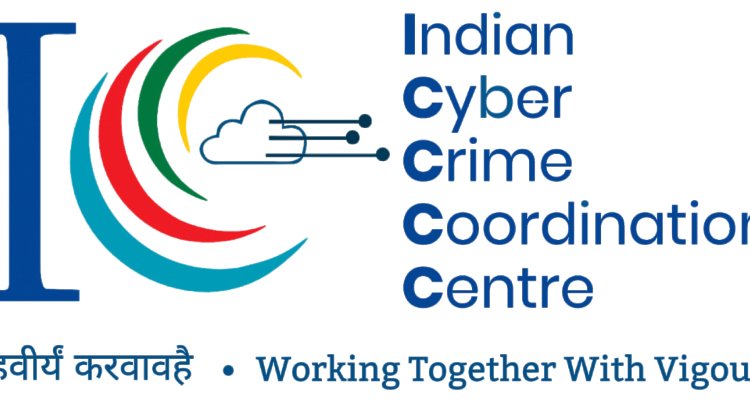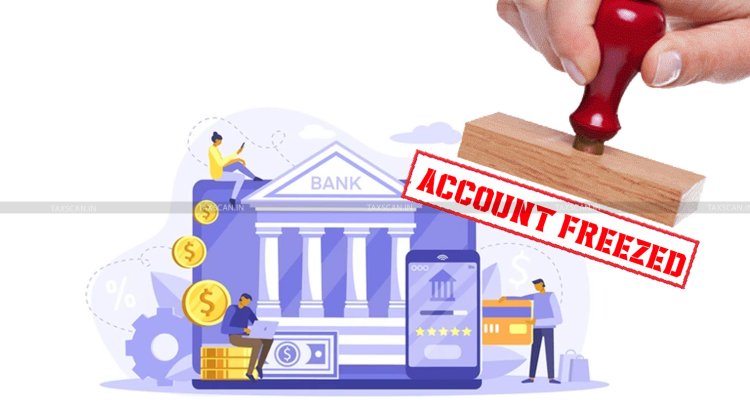“From Data to Trust: The Future of Digital Governance”
Trust has recently emerged as the most valuable currency in today's business world. Businesses thrive on innovation, governments enact policies, and individuals adopt new technologies, but momentum is lost without trust. Digital trust encompasses more than just security and compliance—it is the empowerment, safety, and confidence people feel in engaging online.

Trust has recently emerged as the most valuable currency in today's business world. Businesses thrive on innovation, governments enact policies, and individuals adopt new technologies, but momentum is lost without trust. Digital trust encompasses more than just security and compliance—it is the empowerment, safety, and confidence people feel in engaging online. Trust has become fragile over the years with cyber breaches, personal data misuse, and ethical concerns involving AI. With the rapid advancement in technology, the more poignant question is whether we can trust it.
What is Digital Trust?
Digital Trust can be defined as the confidence people, organisations, and governments place in digital systems as long as they are functioning securely and ethically. It can be examined through four pillars:
A) security breaches, cyber attacks, and infrastructure misuse all fall under “security.”
B) “Privacy” ensures that personal information and data are handled responsibly.
C) “Transparency” involves openness about how information is collected, utilized, and distributed.
D) “Accountability”: Lastly, accountability deals with the repercussions associated with digital actions and decisions.
Digital trust is more than compliance with the laws. To illustrate, Apple highlights privacy features and uses them as a way to win customer trust. Just like the rest of the world, India has also moved closer to the adoption of ‘fintech’ because of the UPI payment system, solely because people trusted that the system was secure and would work to their benefit.
Governance as the Foundation of Trust
Trust entails governance as it does not exist in a vacuum. Governance sets the required boundaries, supervision, and accountability systems necessary in any digital ecosystem for the seamless functioning of all the participants.
Government Role: India's Digital Personal Data Protection Act (DPDPA) 2023 and EU’s GDPR serve as global milestones in safeguarding the rights of the citizenry. Such frameworks ensure proper management of data and allow citizens to engage in seamless digital interactions.
Corporate Governance: If you are a company, governance requires integrating cybersecurity into every boardroom decision. Cyber risk is no longer simply the concern of your IT department — instead, it affects whole companies and even nations. Companies such as Microsoft and IBM incorporate governance into their cybersecurity programs, demonstrating how trust can become established in an organisation.
International Governance: Cyber threats do not recognise state borders; they are an international problem. Agreements such as the Budapest Convention on Cybercrime illustrate the way that governance constructs trust between countries.
Why Trust is a New Currency?
Trust is on-trend as the hallmark of trust now is to provide economic and social capital in a digital world.
a)Brand Loyalty & Consumer Choice: People will now choose products they trust more and more. After a data breach, years of goodwill can disappear instantly while trusted brands continue to have long-lasting customer goodwill over many years.
b) Investment & Growth: Investors and businesses demand trustworthy environments. This has made cyber risk ratings a further aspect of examination for fund managers or advocates on the spot to pursue compliance, a part of due diligence.
c)Digital Adoption: Citizens are far more potential to embrace digital services when they get confidence in the system really slow them. India is a really clear example—its widespread use of Aadhaar, digital payments, and e-governance platforms wasn’t just a matter of convenience, but a reflection of very public trust in how these technologies were implemented.
d)AI & Emerging Technologies: People will not embrace AI-driven healthcare, independent vehicles, or facial identification unless trust is embedded. Lack of compliance leads to resistance, lawsuits, and reputational damage.
A notification illustration: When WhatsApp announced policy changes in 2021 regarding data sharing, public trust really faltered, leading to mass migration to alternatives like Signal and Telegram. This shows how very fragile the combination is—and how rapidly it can turn a company’s downfall.
Building & Sustaining Digital Trust :
1. For Governments: Enact so robust secrecy and cybersecurity laws. Strengthen law enforcement content to address cybercrimes. Maintain transparency in surveillance and data collection.
2. For Businesses: Adopt a “privacy by design” and “security by design” approach. Disclose information usage practices openly to consumers. Implement quite strong governance and accountability at leadership levels.
3. For Individuals: Practice digital hygiene—strong passwords, conservative sharing, and cyber awareness. Stay informed of most rights below information protection laws. Build personal responsibility in verifying sources to combat misinformation.
Digital trust is a shared responsibility, requiring collective sweat across all levels of society.
The Future of Digital Trust:
Looking forward, combined testament decide winners and losers in the cyber world. The nations and corporations that prioritise digital combine will lead the very next wave of technological advancement.
•Quantum Cybersecurity: As quantum computing evolves, traditional encryption methods will become obsolete. Building trust in quantum-proof systems will be essential.
•Decentralized Trust Models: Blockchain and Web3 offer peer-to-peer combine mechanisms, reducing dependence on centralized authorities.
•Ethical AI Governance: Regulations ensuring equity, accountability, and transparency in AI decision-making testament define trust in the next decade.
•Global Cyber Governance: Cross-border collaboration will become vital as cyberattacks, data flows, and misinformation transcend national boundaries.
The very future mantra will shift from “Privacy by Design” to “Trust by Design.”
Conclusion:
Follow cyberdeepakyadav.com on
Facebook, Twitter, LinkedIn, Instagram, and YouTube
What's Your Reaction?























